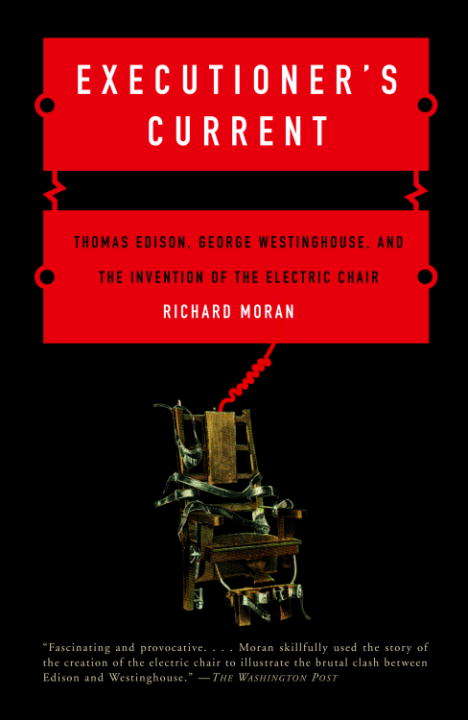Executioner's Current: Thomas Edison, George Westinghouse, and the Invention of the Electric Chair
By:
Sign Up Now!
Already a Member? Log In
You must be logged into Bookshare to access this title.
Learn about membership options,
or view our freely available titles.
- Synopsis
- In this amazing story of high stakes competition between two titans, Richard Moran shows how the electric chair developed not out of the desire to be more humane but through an effort by one nineteenth-century electric company to discredit the other. In 1882, Thomas Edison ushered in the "age of electricity" when he illuminated Manhattan's Pearl Street with his direct current (DC) system. Six years later, George Westinghouse lit up Buffalo with his less expensive alternating current (AC). The two men quickly became locked in a fierce rivalry, made all the more complicated by a novel new application for their product: the electric chair. When Edison set out to persuade the state of New York to use Westinghouse's current to execute condemned criminals, Westinghouse fought back in court, attempting to stop the first electrocution and keep AC from becoming the "executioner's current." In this meticulously researched account of the ensuing legal battle and the horribly botched first execution, Moran raises disturbing questions not only about electrocution, but about about our society's tendency to rely on new technologies to answer moral questions. From the Trade Paperback edition.
- Copyright:
- 2002
Book Details
- Book Quality:
- Publisher Quality
- ISBN-13:
- 9780307425805
- Related ISBNs:
- 9780375724466
- Publisher:
- Knopf Doubleday Publishing Group
- Date of Addition:
- 12/12/19
- Copyrighted By:
- Richard Moran
- Adult content:
- No
- Language:
- English
- Has Image Descriptions:
- No
- Categories:
- History, Nonfiction, Technology, Social Studies
- Submitted By:
- Bookshare Staff
- Usage Restrictions:
- This is a copyrighted book.
